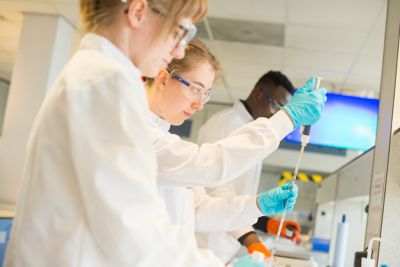Study abroad
On this course, you can apply to study abroad at one of our partner institutions or University of Nottingham Malaysia, and complete your research project abroad.
If you are successful in applying to study abroad, you will get the opportunity to broaden your horizons and enhance your CV by experiencing another culture. Teaching is typically in English, but there may be opportunities to study in another language if you are sufficiently fluent.
You can choose to study similar modules to your counterparts in the UK or expand your knowledge by taking other options.
The school you are joining may also have additional study abroad options available. Please visit the school website for more information.
Please note: In order to study abroad you will need to achieve the relevant academic requirements as set by the university and meet the selection criteria of both the university and the partner institution. The partner institution is under no obligation to accept you even if you do meet the relevant criteria.
Year in industry
On this course will spend a year working in industry where you will gain first-hand experience of exciting challenges and refine the skills you have built so far in the course. In the year-in-industry, you will typically be employed by the placement provider, while you will also remain a student at the university. While it is the student’s responsibility to find and secure a year in industry host, the School of Pharmacy placement team will support you throughout this process.
Please note: In order to undertake an integrated year in industry, you will have to achieve the relevant academic requirements as set by the university and meet any requirements specified by the industry host. There is no guarantee that you will be able to undertake an integrated year in industry as part of your course. If you do not secure an integrated year in industry opportunity but you pass your final year, you will graduate with BSc Pharmaceutical Sciences and this will be reflected in the title of your degree when you graduate.
Key information
Please be aware that study abroad, compulsory year abroad, optional placements/internships and integrated year in industry opportunities may change at any time for a number of reasons, including curriculum developments, changes to arrangements with partner universities or placement/industry hosts, travel restrictions or other circumstances outside of the university’s control. Every effort will be made to update this information as quickly as possible should a change occur.
Study abroad
On this course, you can apply to study abroad at one of our partner institutions or University of Nottingham Malaysia, and complete your research project abroad.
If you are successful in applying to study abroad, you will get the opportunity to broaden your horizons and enhance your CV by experiencing another culture. Teaching is typically in English, but there may be opportunities to study in another language if you are sufficiently fluent.
You can choose to study similar modules to your counterparts in the UK or expand your knowledge by taking other options.
The school you are joining may also have additional study abroad options available. Please visit the school website for more information.
Please note: In order to study abroad you will need to achieve the relevant academic requirements as set by the university and meet the selection criteria of both the university and the partner institution. The partner institution is under no obligation to accept you even if you do meet the relevant criteria.
Year in industry
On this course will spend a year working in industry where you will gain first-hand experience of exciting challenges and refine the skills you have built so far in the course. In the year-in-industry, you will typically be employed by the placement provider, while you will also remain a student at the university. While it is the student’s responsibility to find and secure a year in industry host, the School of Pharmacy placement team will support you throughout this process.
Please note: In order to undertake an integrated year in industry, you will have to achieve the relevant academic requirements as set by the university and meet any requirements specified by the industry host. There is no guarantee that you will be able to undertake an integrated year in industry as part of your course. If you do not secure an integrated year in industry opportunity but you pass your final year, you will graduate with BSc Pharmaceutical Sciences and this will be reflected in the title of your degree when you graduate.
Key information
Please be aware that study abroad, compulsory year abroad, optional placements/internships and integrated year in industry opportunities may change at any time for a number of reasons, including curriculum developments, changes to arrangements with partner universities or placement/industry hosts, travel restrictions or other circumstances outside of the university’s control. Every effort will be made to update this information as quickly as possible should a change occur.








